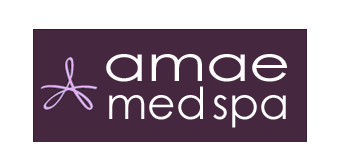 https://birminghammedspa.com/wp-content/uploads/2020/01/hormone-replacement-detroit.png
150
300
admin
https://birminghammedspa.com/wp-content/uploads/2017/11/l-med-spa-2.png
admin2024-01-25 05:53:022024-02-03 05:59:24Hormone Therapy Treats ‘Low T’ and Erectile Dysfunction (ED)
https://birminghammedspa.com/wp-content/uploads/2020/01/hormone-replacement-detroit.png
150
300
admin
https://birminghammedspa.com/wp-content/uploads/2017/11/l-med-spa-2.png
admin2024-01-25 05:53:022024-02-03 05:59:24Hormone Therapy Treats ‘Low T’ and Erectile Dysfunction (ED)MED SPA BLOG
Thank you for visiting the AMAE Med Spa Blog, where we keep you updated on the latest day spa news and events.
Check back often to read about the latest techniques and state-of-the-art technologies in anti-aging, skincare and body rejuvenation.
RELATED ARTICLES
35 Symptoms that May be Due to Hormone Imbalance
And How Bioidentical Hormone Replacement Therapy Can Help
If you are a woman, you already know that your body is capable of truly amazing things – and you also realize you’re your body is very complicated. We women do everything that men do AND we can also grow another tiny human being inside of us!
But such a complex piece of machinery is also certain to come with ongoing ‘maintenance’ issues. If you are a woman between the age of 40 and 65 and suddenly strange issues begin to appear – physical, psychological, or sexual – it very well could be the result of hormone imbalance.
There are actually at least 36 women’s health issues that may be signs of hormone imbalance – related to the hormone decline that occurs over time as a woman moves out of her reproductive years and gets closer to menopause. But the good news is that Bioidentical Hormone Replacement Therapy (BHRT) available at AMAE Med Spa in the West Bloomfield area can alleviate most of these symptoms – and give you your quality of life back.
In this article the hormone imbalance experts AMAE Med Spa in the West Bloomfield area explore the most common symptoms of hormone imbalance that can be improved by Bioidentical Hormone Replacement Therapy (BHRT).
When Does Hormone Imbalance Start?
On average, most women enter menopause somewhere between the ages of 45 and 55 years old. But the physical, psychological, and sexual changes caused by hormone decline can start as early as age 40. And once it starts, it typically lasts about 7 years – and can be drawn out for as long as 14 years – which is a very long time to suffer with uncomfortable symptoms.
Below is a list of the thirty-five symptoms of hormone imbalance ordered by the age at which they are most likely to occur.
Symptoms of Hormone Imbalance: Age 40 to 45
Only one percent of women go into the pre-menopausal hormone decline before age 40.
The earliest signs of hormone imbalance include:
#1. Sudden and/or unexplained weight gain
#2. menstruation that become heavier or lighter than usual
#3. three or more missed periods in a row
#4. insomnia or sleep problems
#5. hot flashes
#6. vaginal dryness, discomfort, and/or itching
Remember, these symptoms can also be signs of pregnancy or other medical conditions, so they are often missed.
Symptoms of Hormone Imbalance: Age 45 to 50
Most women enter “perimenopause” in their late 40s – when production of the female hormones estrogen and progesterone more dramatically slow down.
In addition to symptoms #1 through #6 above, hormone decline at ages 45 to 50 often include:
#7. irritability
#8. fatigue or loss of energy
#9. unexplained mood swings or emotions
#10. night sweats
#11. low libido (sex drive)
#12. trouble concentrating or memory issues
#13. thinning hair
#14. increased or irregular heart rate
#15. urinary tract infections (UTIs)
Symptoms of Hormone Imbalance: Age 50 to 55
By a woman’s early 50s she will typically be making the final transition into menopause, with the accompanying significant hormone decline. Generally, by the age of 50s year old a woman’s ovaries are no longer releasing eggs or producing much estrogen.
Between age 50 or 55, in addition to symptoms #1 through #15 above, the following problems of hormone decline also become more common:
#16. bladder leaks (urinary incontinence)
#17. Increased anxiety
#18. osteoporosis (decreased bone density)
#19. changes in breast tissue
#20. breast tenderness or pain
#21. noticeably sagging or wrinkled skin
#22. Decreased ability to achieve orgasm
By the age of 55 years old, most women have gone through menopause. A year after a female’s last period, a woman is considered to be in the postmenopausal phase. During the postmenopausal phase, a woman’s risk of heart disease, osteoporosis, Type 2 diabetes and other serious diseases can also increase – influenced in large part by hormone deficiency.
Bioidentical Hormone Replacement Therapy (BHRT) can help protect a woman against heart disease, osteoporosis, and many other age-related diseases.
Less Common Symptoms of Hormone Imbalance
While symptoms #1 through #22 above are the most common signs of hormone decline, there are also a number of less common symptoms of hormone imbalance. These can include:
#23. tingling sensation in extremities
#24. bloating or water retention
#25. brittle or cracked fingernails
#26. dizziness or loss of balance
#27. panic attacks
#28. depression
#29. allergies
#30. headaches
#31. burning tongue
#32. digestive problems
#33. muscle tightness
#34. joint pain
#35. increase or changes in body odor
Bioidentical Hormone Replacement Therapy (BHRT) for Hormone Imbalance| West Bloomfield:
A woman’s hormones affect every aspect of her body, including her physical, mental, emotional, psychological, and sexual well-being. And 100% natural Bioidentical Hormone Replacement Therapy (BHRT) available at AMAE Med Spa in the West Bloomfield area can help restore a woman’s mind, body, and overall health to optimal balance.
Bioidentical Hormone Replacement Therapy (BHRT) pellets offer several advantages as a method of restoring and rebalancing declining hormones. With BHRT Pellets there are NO daily pills, NO painful shots, and NO messy patches or creams to apply.
Further, Bioidentical Hormone Replacement Therapy (BHRT) is safer, more effective, and more natural than lab-created synthetic hormone pills. This is because bioidentical hormones are derived from natural plant-based sources making them more identical to the body’s own hormones, offering more effective results, with fewer side-effects.
If you are experiencing any or many of the 35 symptoms listed above, schedule an appointment at AMAE Med Spa in the West Bloomfield area today. A simple blood test and thorough analysis by Dr. Ali will be able to identify your unique individual hormone deficiencies, which can be treated conveniently and effectively with BHRT pellets.













